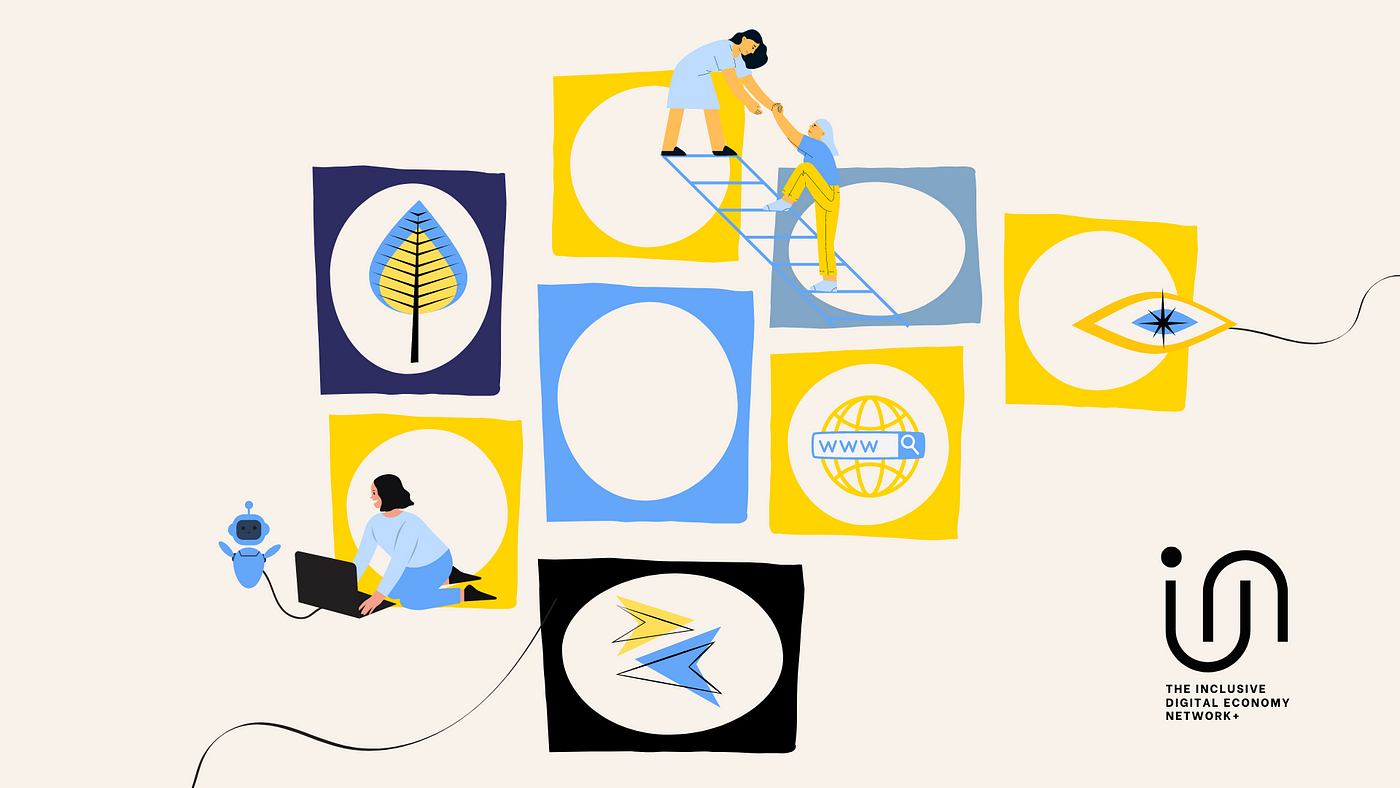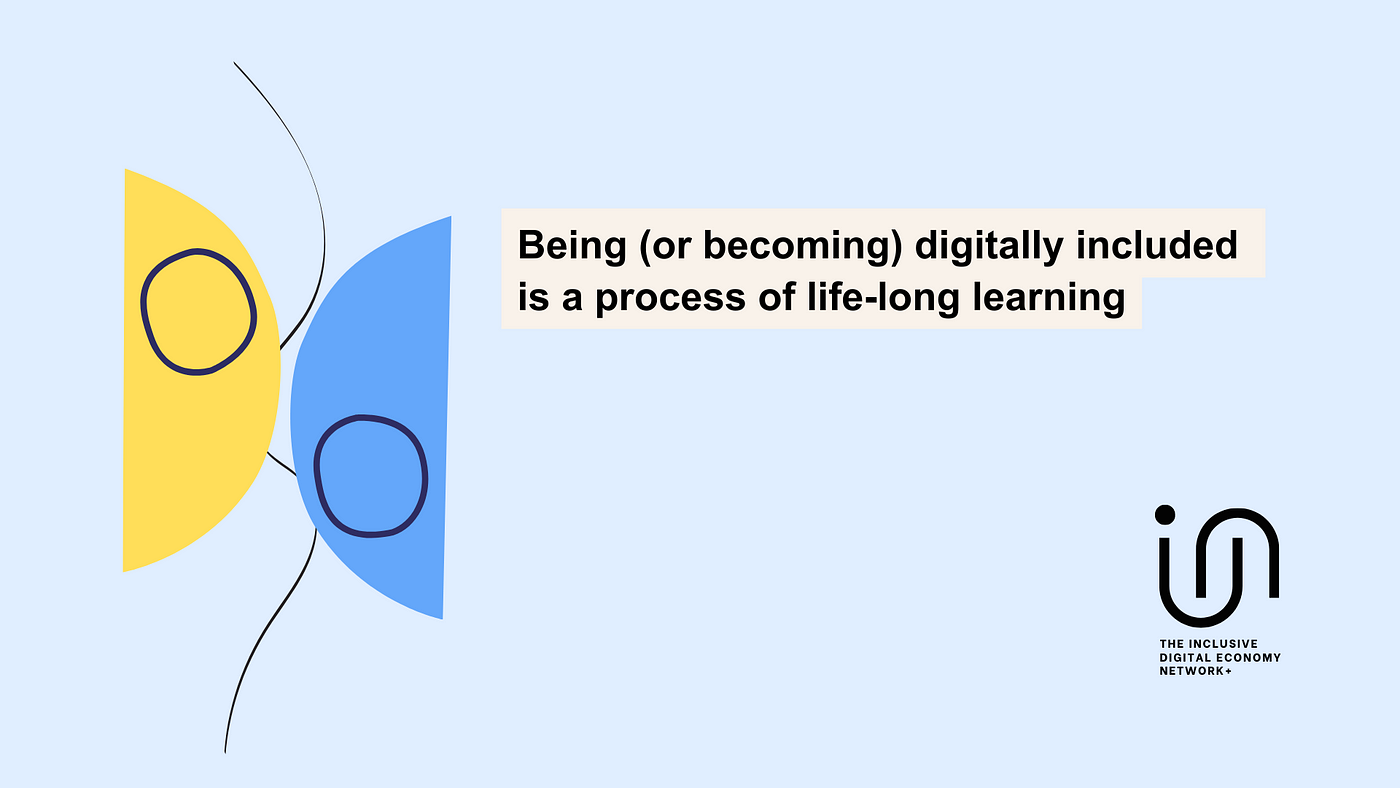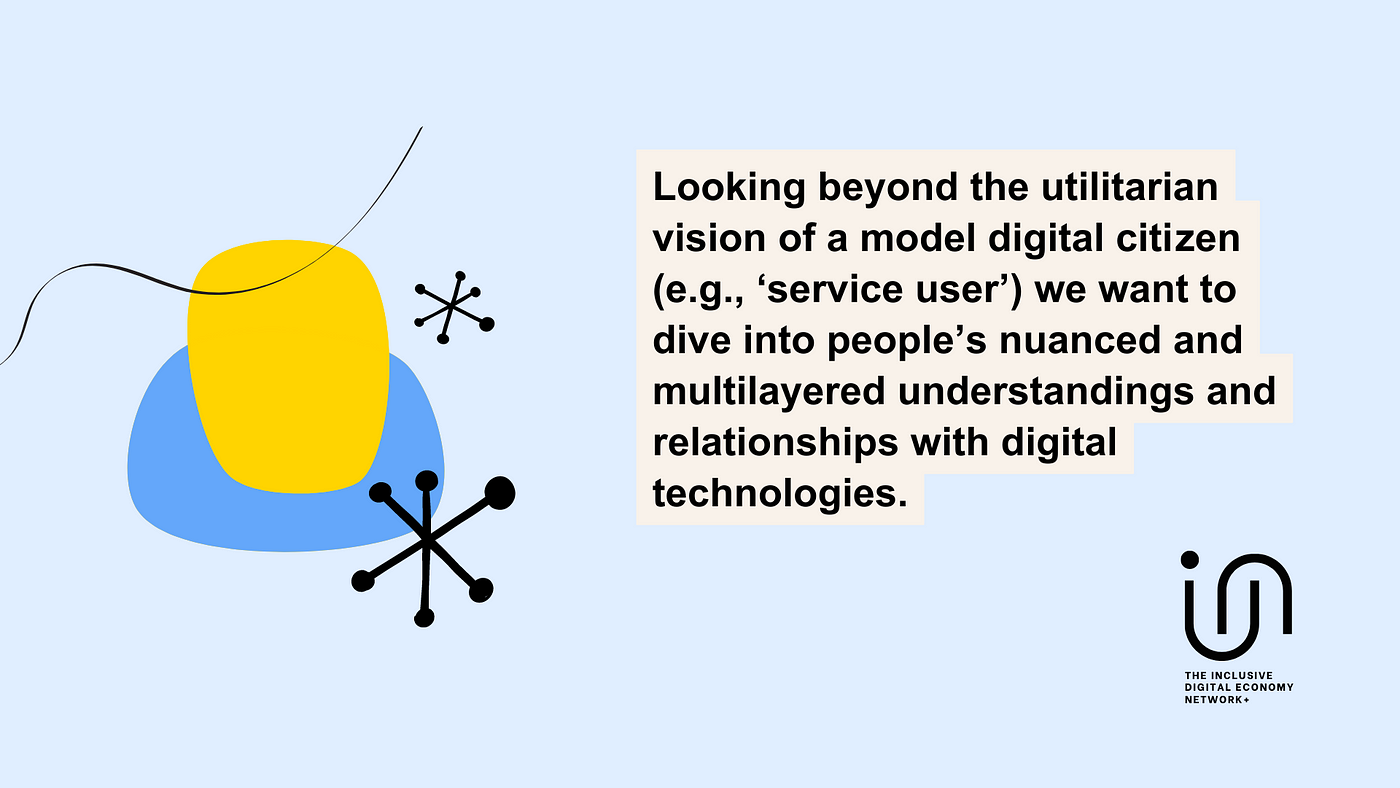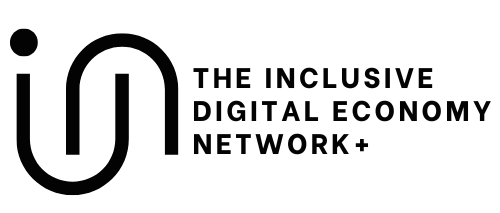Is digital equity a utopian idea?
A digitally equitable world would be a place where all people can access and use digital technologies to meaningfully participate in society, democracy, and economy.

Just imagine: no systemic barriers and anyone (regardless of their gender identity, race, [dis]ability, and/or social-economic status and other intersectional factors) would have the same chances to use and benefit from digital technologies. Those digital technologies would be fit for a variety of uses; would be organised with and through different values and principles; and would be experienced in a myriad of ways and in relation to our lived experience of being in the world.
A digitally equitable world would account for all lived experiences — including those who wish to stay offline or limit their use of technologies (e.g., a right to disconnect).

How far are we from this becoming the norm?
In 2023, nearly half the global population aged ten years and over — 3 billion people — has never used the Internet (ITU). Digital deprivation is a European problem with 5.4% of children living in a household that cannot afford to have a computer and/or have an internet connection for personal use at home.
In the United Kingdom, there are 14 million people who are digitally excluded. The soaring cost of living has led many to cancel their broadband subscription. 2.5 million people in the UK are reported to be behind on their broadband bills (digital poverty alliance).
Being [digitally] poor is expensive.
Those who are digitally excluded often pay more for essentials (e.g., gas, and electricity). Digital poverty intersects with other factors such as one’s socio-economic inequalities, age, race, and disability. As Digital Poverty Alliance Community reports, only 74% of those who earn up to £13,500 per year have Essential Digital Skills for Life, compared to 95% of those who earn over £75,000 (Allmann, 2022).

Meaningful digital inclusion is a dynamic process that continues to be shaped by social, economic, cultural, and technological developments. This is what the 2021 ‘Beyond Digital’ UK Parliamentary report argues, when the authors point out that issues around digital inclusion are not just about access, take up and use, but also — and increasingly — the wider implications of inadequate digital inclusion for health, education, and work.
What it means to be digitally included does not have a fixed meaning.
Being (or becoming) digitally included is a process of life-long learning. It’s not about obtaining a specific skill or having access to a specific piece of equipment, but about being able to follow and participate in the digital information flow[s].
Considering all the above — is it even possible to address one’s own (and the collective’s) digital inclusion needs in a meaningful way? How can our INCLUDE+ efforts contribute to the co-creation of digitally equitable futures? These are some of the questions we aim to co-explore in a critical, collective, and community-grounded manner.

In doing so, we want to recognise the scope of the challenge — and, most importantly, our limitations. In short, we aim to dream big, but ensure that any of our processes and aims are realistic and grounded in our values.
INCLUDE+ Network: a [cautiously] speculative take on digitally equitable futures
INCLUDE+ is a network exploring how social and digital environments can be built, shaped and sustained to enable all people to thrive. Our five-year programme of activities (2022–2027) aims to build a knowledge community around in/equalities in a digital society that will comprise industry, academia, the public and third sectors.
Digital equity is necessary for civic participation, employment, and access to essential services (e.g., online health resources). Our intention, together with a diverse range of collaborators, is to [co]dissect and [co]create digitally equitable futures, and provide practical recommendations and methods that might get us there.
INCLUDE+ Process: mindful & cross/anti-disciplinary [co]navigation of digital inequality landscapes.
INCLUDE + Process is our attempt to create an inclusive, holistic, and responsive (or agile) model to systematically address the topic of digital equity. In the context of our work, we’re specifically focusing on three broad areas: (1) well-being; (2) precarity, and (3) civic participation.
We’re not looking to create a specific set of rules or tools to get digital equity right.
The idea of digital inclusion impact and value is an important one. However, at INCLUDE+ we would like to steer away from the pre-imposed — and so often utilitarian — assumptions of digital inclusion as a means to an end. Approaching digital equity in a holistic, mindful, values-driven way, means supporting communities to thrive in the digital times while critically challenging the existing, capitalism-driven socio-technological power structures and the dangers of — what bell hooks calls — ‘the imperialist white-supremacist capitalist patriarchy’.

Looking beyond the utilitarian vision of a model digital citizen (e.g., ‘service user’) we want to dive into people’s nuanced and multilayered understandings and relationships with digital technologies.
This might involve looking into the importance of Digital Leisure, Radical Intimacy, Critical Consciousness, Design Justice, Feminist Queer Crip, Neuroqeer, and Radical Accessibility (and many others).
What all of these approaches have in common is a re-thinking of what digital technology is and might be — reframed and reorganised around different principles, and prioritising lived experiences. This is far removed from digital solutionism, the idea that technology can solve society’s issues, not least because what the digital is, comes out of living in the world now.
INCLUDE+ Process is meant to be semi-planned, but flexible and imperfect — potentially leading to accidental discoveries. To achieve this we want to remain self-critical and allow space for vulnerability to get things wrong (because let’s face it, things do go wrong all the time).
Digital inclusion can be a messy process — while acknowledging our limitations, we aim to embrace and cultivate authenticity and vulnerability.
INCLUDE+ Process is to become our mechanism to check in with ourselves (and those who work with us) and adjust — or fail — if needed. Over the next five years, we will use INCLUDE+ Process to reclaim the neoliberal idea of impact by positioning its co-definition within the community itself.

INCLUDE+ Process is obviously still a ‘work in progress’ (and might always be). The process and resources will be shaped by our activities in the next five years, and we hope that some of you will join us in making it happen.
For now, just so we’re all on the same page, let’s describe INCLUDE+ Process as:
- our methods, tools, participatory practices, and approaches;
- application of our core values to our processes and overall project management (e.g. design, facilitation, evaluation);
- critical processes related to reflection, consideration, and iteration (e.g., workshops, check-in).
What are your thoughts on the idea of Digital Equity Utopia?
We are keen to take this conversation forward and would love to hear from you — feel free to contact our INCLUDE+ Team.
Sources:
Arora, P., Alencar,A. Jaramillo-Dent,D., Warnes, J. & Perez-Iglesias, E. (2022). The Digital Leisure Divide and the Forcibly Displaced. UNHCR. The UN Refugee Agency. https://www.unhcr.org/innovation/wp-content/uploads/2022/05/The-Digital-Leisure-Divide-and-the-Forcibly-Displaced.pdf
Costanza-Chock, S. (2020). Design justice: Community-led practices to build the worlds we need. The MIT Press.
Freire, P. (2021). Education for critical consciousness. Bloomsbury Publishing.
ITU. (2020). Connecting humanity. Assessing investment needs of connecting humanity to the Internet by 2030. https://www.itu.int/hub/publication/d-gen-invest-con-2020/
Kafer, A. (2013). Feminist, queer, crip. Indiana University Press.
Walker, N. (2021). Neuroqeer: an Introduction. Neuroqeer. The Writings of Dr. Nick Walker. https://neuroqueer.com/neuroqueer-an-introduction/
Walker, N., & Raymaker, D. M. (2021). Toward a neuroqueer future: An interview with Nick Walker. Autism in Adulthood, 3(1), 5–10.
Wood, J., & , I. (2023). Right to disconnect: The countries passing laws to stop employees working out of hours. https://www.weforum.org/agenda/2023/02/belgium-right-to-disconnect-from-work/
